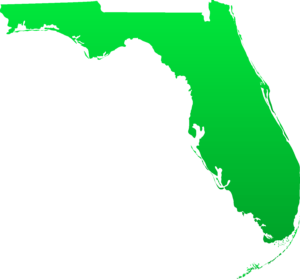(a) Petition. The petition must be verified as required by law and must contain:
(1) a statement of the interest of each petitioner, each petitioner’s name and address, and the name and office address of each petitioner’s attorney;
(2) the name and last known address of the decedent, last 4 digits of the decedent’s social security number, date and place of death of the decedent, and state and county of the decedent’s domicile;
(3) so far as is known, the names and addresses of the surviving spouse, if any, and the beneficiaries and their relationship to the decedent and the year of birth of any who are minors;
(4) a statement showing venue;
(5) a statement whether domiciliary or principal proceedings are pending in another state or country, if known, and the name and address of the foreign personal representative and the court issuing letters;
(6) a statement that the decedent’s will, if any, does not direct administration as required by chapter 733, Florida Statutes;
(7) a statement that the value of the entire estate subject to administration in this state, less the value of property exempt from the claims of creditors, does not exceed $75,000 or that the decedent has been dead for more than 2 years;
(8) a description of all assets in the estate and the estimated value of each, and a separate description of any protected homestead and exempt property;
(9) a statement either:
(A) that all creditors’ claims are barred or
(B) that a diligent search and reasonable inquiry for any known or reasonably ascertainable creditors has been made and one of the following:
(i) A statement that the estate is not indebted.
(ii) The name and address of each creditor, the nature of the debt, the amount of the debt and whether the amount is estimated or exact, and when the debt is due. If provision for payment of the debt has been made other than for full payment in the proposed order of distribution, the following information must be shown:
(a) The name of the person who will pay the debt.
(b) The creditor’s written consent for substitution or assumption of the debt by another person.
(c) The amount to be paid if the debt has been compromised.
(d) The terms for payment and any limitations on the liability of the person paying the debt.
(10) in an intestate estate, a statement that after the exercise of reasonable diligence each petitioner is unaware of any unrevoked wills or codicils;
(11) in a testate estate, a statement identifying all unrevoked wills and codicils being presented for probate, and a statement that each petitioner is unaware of any other unrevoked will or codicil; and
(12) a schedule of proposed distribution of all probate assets and the person to whom each asset is to be distributed.
(b) Service. The joinder in, or consent to, a petition for summary administration is not required of a beneficiary who will receive full distributive share under the proposed distribution. Any beneficiary and any known or reasonably ascertainable creditor not joining or consenting must receive formal notice of the petition.
(c) Testate Estate. In a testate estate, on the filing of the petition for summary administration, the decedent’s will must be proved and admitted to probate.
(d) Order. If the court determines that the decedent’s estate qualifies for summary administration, it must enter an order distributing the probate assets and specifically designating the person to whom each asset is to be distributed.

